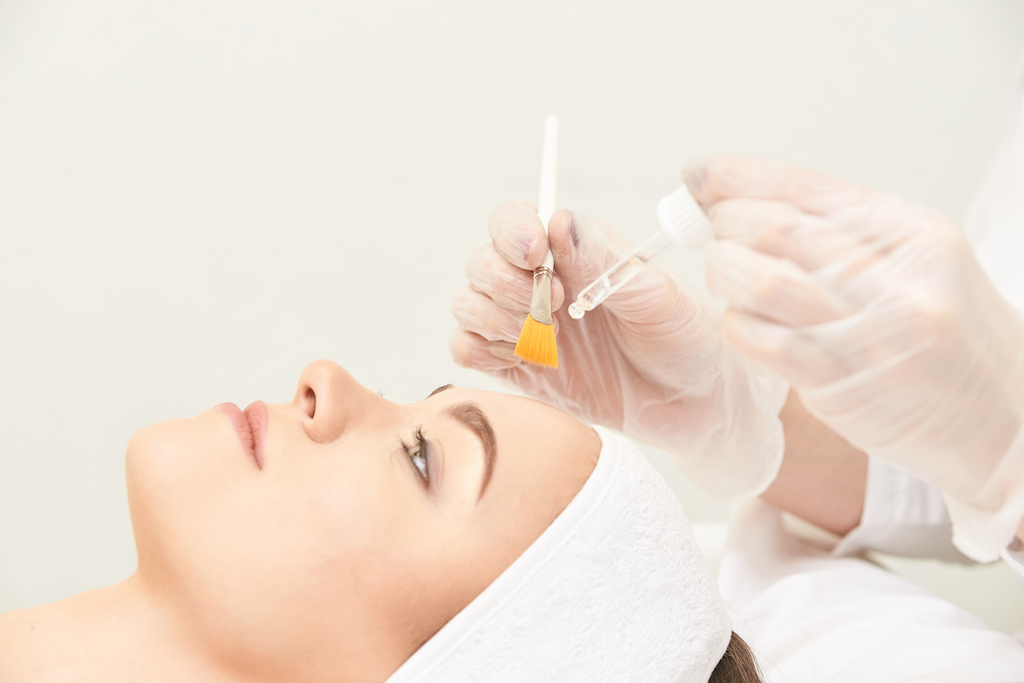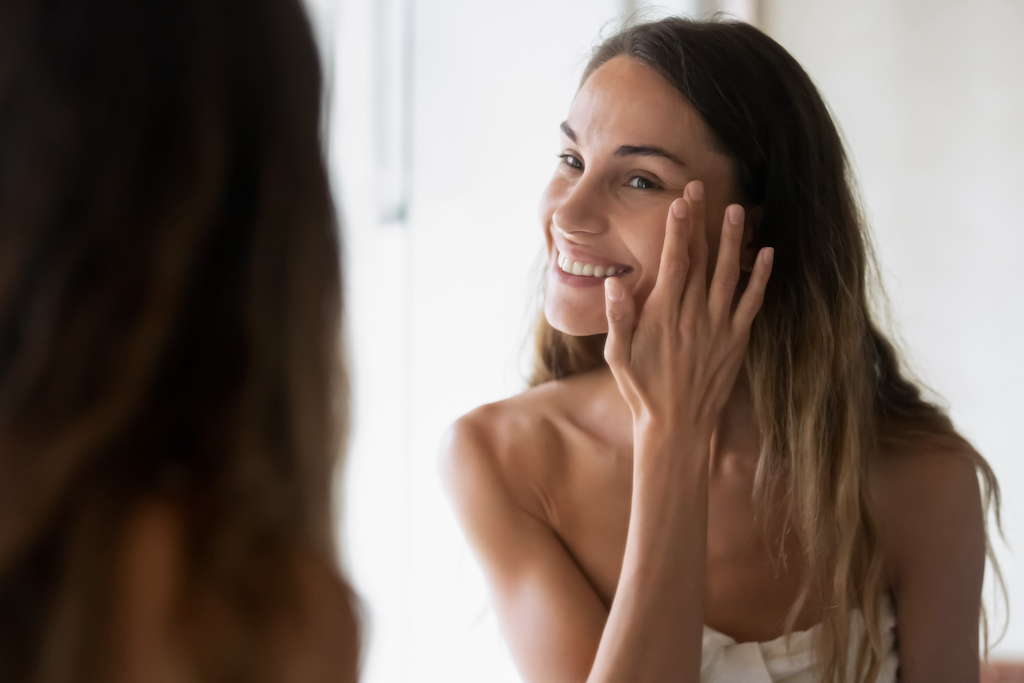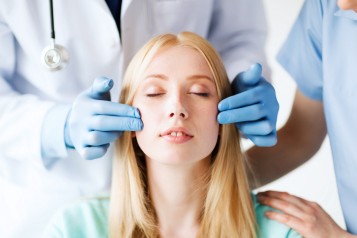Dr. Karyn Grossman is an internationally renowned, board-certified cosmetic dermatologist with a well-known celebrity following. Trained at Harvard Medical School, she’s considered a key opinion leader in all fields of esthetics and often works on its frontlines to help develop new technologies, fillers, and devices. Haute Beauty chats with Dr. Karyn Grossman to discuss the differences between retinoids and retinol, how it works, and what it treats.
 Photo Credit: ShutterstockThere’s a bit of confusion over retinoids and retinol. What’s the main difference between the two?
Photo Credit: ShutterstockThere’s a bit of confusion over retinoids and retinol. What’s the main difference between the two?
Essentially, retinol is a type of retinoid, both of which are derived from vitamin A. Over-the-counter products usually contain retinol, which is a weaker, less potent form of retinoid. Retinoids are often stronger, prescription-strength compounds, like the popular Retin-A. Both retinol and retinoids are widely regarded as the gold standard for anti-aging and should be a staple in everyone’s skincare routine once they enter into their mid to late twenties.
How does retinoid work and what is it used to treat? How does retinol work and what is it used to treat?
The mechanism of action is a bit complex but similar for both retinoids and retinol. To put it simply, retinol and retinoids change how a cell functions by accelerating the speed at which skin cells divide and create new cells. When retinoids or retinol are applied topically, they increase cell division on the surface building up a thicker top layer. In addition to increasing cell turnover, retinol and retinoids stimulate the production of collagen and elastin deep in the dermis. Hyaluronic acid, elastin, and collagen are naturally found in your skin and keep it looking healthy and youthful.
As we age, the production of HA, collagen, and elastin begins to slow down, leading to thinner skin, which is responsible for the signs of aging. The skin is comprised of almost 80% collagen so it is key to keeping your skin looking fresh. The increase in production of collagen, elastin, and HA allows retinoids and retinol to effectively fight all sorts of skin ailments, including acne, wrinkles, sun damage, and pore size.
 Photo Credit: ShutterstockWhen should someone pick retinoid over retinol and vice-versa?
Photo Credit: ShutterstockWhen should someone pick retinoid over retinol and vice-versa?
For people with more sensitive or dry skin, I would recommend starting off with less potent retinol, a couple of times a week at most then slowly build up your tolerance. Begin to increase the frequency of use after about a month or so, and then maybe after a few months, your skin will be able to tolerate a prescription-strength retinoid. Most people who’ve used retinoids in the past or have oilier skin can likely use retinoids without causing significant irritation but should still start slow. I strongly recommend that everyone consult with a dermatologist who specializes in skincare to help chose a regimen that works with your unique skin type and lifestyle. In my office, I provide my patients with an individualized A-Z skincare routine as a part of all patient consultations.
How should people incorporate retinoid and retinol into their routine? Can you use multiple products containing them at the same time?
The most important thing when using retinoids/retinol is to go slow! Often people are too aggressive when they first begin using these products. This leads to skin irritation that presents as dry, red, flaky skin… no one wants to experience this when embarking on a new skincare regimen! If you are using multiple products and layering, I strongly suggest reading the labels and understanding how the ingredients will interact with one another. For example, benzoyl peroxide or alpha hydroxy acids can deactivate certain retinoids, while other ingredients like witch hazel or ethyl alcohol can dry out the skin causing increased redness, dryness, and irritation. Also, always use a moisturizer and sunscreen when actively using retinol or retinoids; this will prevent sunburns and drying out the skin.
What are the side effects of both that people need to consider? Are they safe for everyone to use?
Common side effects are mild irritation, redness, sun sensitivity, dryness, flaking, and burning. Often these are signs that you’ve been too aggressive with your skincare routine or are overusing products. The key is to allow your skin to acclimate, start slow with an over-the-counter retinol a few times a week then work your way up to a stronger prescription retinoid. The only people who I would not recommend using retinol or retinoids are pregnant women and those who are actively trying to conceive.
For more information, visit Dr. Brian A. Levine's social media:

























